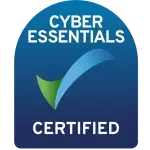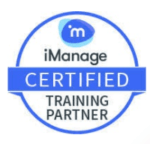
Welcome to an era of personalized corporate training, where the convergence of personalization and learning pathways is revolutionizing the way employees acquire new skills and knowledge. In this fast-paced and dynamic business landscape, traditional one-size-fits-all training approaches fall short of meeting the diverse needs and learning styles of individuals.
In this article, we will delve deeper into the elements of personalization and learning pathways in corporate training. We will explore the methodologies, technologies, and strategies that organizations can adopt to transform their training programs into personalized and impactful learning experiences.
Let’s unlock the potential of personalized corporate training and empower employees to reach new heights of success…
IN THIS ARTICLE...
TL;DR Personalized Corporate Training
By understanding the specific needs and learning styles of employees, organizations can create customized learning journeys that resonate with individuals and drive better learning outcomes.
Data and analytics play a pivotal role in the personalization process. By harnessing the power of data, organizations can track learner progress, gather insights, and make informed decisions to adjust the learning experience accordingly. This data-driven approach ensures that training content is optimized and aligned with the evolving needs of each learner.
Offering multiple learning pathways and planned learning journeys is another key aspect of personalized corporate training. Recognizing that employees have different goals, aspirations, and skill sets, organizations now provide various learning pathways that cater to diverse learning objectives. Whether it’s a career development track, a technical skills enhancement path, or a leadership journey, these learning pathways empower individuals to pursue their unique learning goals and embark on a personalized growth trajectory.
Technology plays a pivotal role in facilitating the personalization and customization of eLearning content. Artificial intelligence (AI) and machine learning algorithms enable organizations to optimize and automate the personalization process. By leveraging technology, organizations can deliver highly relevant and tailored training content to each employee, fostering a more engaging and impactful learning experience.
Importance of Personalization in Corporate Training
Personalization in corporate training is more important than ever before. Recognizing that each learner is unique, organizations are now embracing learning methods and delivery styles that cater to individual preferences. The days of monotonous training sessions and generic content are giving way to tailored eLearning experiences that engage learners on a personal level.
Benefits of Personalization in Corporate Training
The benefits of personalized corporate training extend far beyond mere engagement. Personalization and learning pathways have a profound impact on employee motivation and retention. When employees feel that their training is designed specifically for them, they become more invested and engaged in the learning process. The tailored content, coupled with personalized feedback and recognition, nurtures a sense of ownership and commitment, leading to improved employee performance and loyalty.
Moreover, personalization and learning pathways have the potential to increase accessibility and equity in corporate training. By addressing diverse learning needs and abilities, personalized training experiences bridge gaps and create equal opportunities for all employees to develop their skills and contribute to organizational success. This inclusivity fosters a culture of continuous learning and growth, where every employee feels valued and supported on their learning journey.
Today, we will delve into the world of personalized corporate training, exploring how personalization and learning pathways have the power to transform learning experiences for employees.
How to Personalize eLearning Content for Employees
As a training manager, one of your primary responsibilities is to ensure that the training programs you oversee effectively meet the needs of your employees. Personalizing eLearning content is a key strategy to achieve this goal. By understanding the unique needs and learning styles of your employees, you can create tailored learning experiences that resonate with them on a personal level.
Personalizing eLearning content for individual learners is a critical aspect of effective corporate training. By understanding the unique needs and learning styles of your employees, leveraging data and analytics to track progress, and actively seeking and incorporating learner feedback, you can create customized learning experiences that drive engagement, improve knowledge retention, and ultimately enhance the effectiveness of your training programs.
By targeting training to the individual, you empower your employees to thrive and contribute their best to the success of your organization.
Understanding the Unique Needs and Learning Styles of Employees
Every employee brings their own set of strengths, weaknesses, preferences, and prior knowledge to the table. Recognizing and catering to these individual differences is crucial for effective training. By conducting assessments, surveys, and interviews, you can gather valuable insights about your employees’ learning preferences, goals, and challenges.
Consider implementing a comprehensive onboarding process that includes individual assessments. This will help you understand the specific skills and knowledge gaps of each employee, allowing you to design personalized learning paths that address their unique needs.
Some employees might prefer visual or interactive content, while others may benefit more from hands-on exercises or collaborative group activities. By tailoring the content delivery to match individual learning styles, you can enhance engagement and knowledge retention.
Touched on well by one of our Client Family Members in a recent roundtable event:
“It’s crucial to recognize that people learn in different ways, each learner is an individual and they have their own individual needs.”
Marni Beach – User Experience Training Manager
Tailoring eLearning to Learning Styles: The Meshing Hypothesis
The concept of learning styles suggests that individuals have different preferences and tendencies when it comes to acquiring and processing information. While there are various models and theories about learning styles, the following are some of the most recognized and commonly referenced learning styles:


- Visual learners prefer to process information through visual aids such as diagrams, charts, graphs, and videos. They often benefit from seeing information presented in a visual format.
- Auditory learners learn best through listening and hearing information. They tend to benefit from lectures, discussions, podcasts, and audio recordings.
- Kinesthetic or tactile learners learn best through physical engagement and hands-on experiences. They prefer to learn by doing, touching, and manipulating objects. They benefit from activities such as experiments, role-playing, and interactive simulations.
- Reading/writing learners prefer to learn through written materials. They benefit from reading textbooks, taking notes, and writing summaries or essays to process information.
- Multimodal learners do not have a dominant learning style and instead benefit from a combination of different learning approaches. They may incorporate visual, auditory, and kinesthetic elements in their learning process, adapting their style to the specific context or task.
It’s important to note that while learning styles are widely recognized and can provide insights into individual preferences, there is research that suggests the impact of tailoring instruction to specific learning styles (meshing hypothesis) may not have a significant impact on learning outcomes.
The focus should be on providing varied and engaging learning experiences that incorporate different modalities to support diverse learners effectively.
Using Data and Analytics for Personalized Corporate Training
Data and analytics play a vital role in personalized corporate training. By leveraging learning management systems (LMS) and other digital tools, you can collect valuable data on learner progress, performance, and engagement. These insights enable you to track how individual employees are progressing through the training material, identify areas where they may be struggling, and determine the effectiveness of different learning resources.
With the help of analytics, you can monitor completion rates, quiz scores, and time spent on various modules. This data can highlight patterns and trends, providing you with a comprehensive overview of individual and group performance. By analyzing this data, you can identify areas where additional support or customized interventions are necessary, allowing you to optimize the learning experience for each employee.
Adjusting the Learning Experience Based on Learner Feedback
Regular feedback loops are essential for personalizing eLearning content and ensuring continuous improvement. Encourage employees to provide feedback on the training materials, delivery methods, and overall learning experience. This feedback can be collected through surveys, focus groups, or one-on-one discussions.
By actively listening to employee feedback, you can gain insights into what is working well and what areas need improvement. Make sure to address any concerns or suggestions promptly and transparently. This two-way communication fosters a collaborative learning environment, where employees feel valued and have a sense of ownership over their own development.
Moreover, consider implementing mechanisms for self-assessment and self-reflection. This empowers employees to monitor their own progress, identify areas for improvement, and take ownership of their learning journey. By offering opportunities for self-directed learning and self-assessment, you promote a culture of continuous improvement and personal growth.
Creating Effective Learning Pathways for Corporate Training
The individuals within your organization have diverse backgrounds, skills, and aspirations, so a one-size-fits-all training approach may not effectively meet the unique needs of each employee. By offering multiple learning pathways, you can provide targeted and personalized corporate training that caters to different learners and their specific goals.
Offering multiple learning pathways in corporate training brings several significant benefits. By catering to different learners and their specific goals, you ensure that training programs align with individual aspirations. Creating planned learning journeys for career development demonstrates the organization’s commitment to employees’ growth and fosters long-term engagement. Moreover, encouraging self-directed learning empowers employees to take ownership of their learning journey and cultivates a culture of continuous improvement. By embracing the power of multiple learning pathways, you can unlock the full potential of your workforce and drive organizational success.
Catering to Different Learners and Their Specific Goals
Every employee has their own set of professional goals and learning objectives. By offering multiple learning pathways, you can ensure that employees have access to the resources and training programs that align with their individual aspirations. For example, employees interested in developing leadership skills may follow a dedicated leadership pathway, while those aiming to enhance their technical expertise may opt for a specialized technical skills pathway.
By tailoring learning pathways to specific goals, you create a sense of relevance and purpose in the training programs. Employees are more likely to be motivated and engaged when they see how the training directly contributes to their professional growth and success.
Creating Planned Learning Journeys for Career Development
Career development is a critical aspect of employee satisfaction and retention. By creating planned learning journeys, you provide employees with a structured path to advance their careers within the organization. These journeys can include a sequence of training modules, certifications, mentorship opportunities, and on-the-job experiences that progressively build the skills and competencies required for higher-level roles.
By offering clear and well-defined learning pathways, you not only support employees’ career aspirations but also foster a culture of continuous learning and growth. This, in turn, enhances employee engagement and loyalty as they perceive the organization as invested in their long-term professional development.
Encouraging Self-directed Learning and Empowerment
Offering multiple learning pathways also promotes self-directed learning and empowers employees to take ownership of their own development. By providing a variety of learning options, such as self-paced online courses, workshops, webinars, or collaborative projects, you allow employees to choose the methods that resonate best with their learning preferences.
Self-directed learning empowers employees to tailor their learning experiences to their unique needs, interests, and schedules. This autonomy fosters a sense of empowerment, motivation, and accountability, as employees actively engage in their own growth and development.
Furthermore, by encouraging employees to explore different learning pathways and choose their own developmental routes, you tap into their intrinsic motivation and promote a growth mindset. This approach cultivates a culture of continuous learning, where employees feel supported in their quest for knowledge and skill acquisition.
Role of Technology in Personalizing Corporate Training
Leveraging technology in corporate training allows you to personalize and customize the learning experience. By harnessing AI and machine learning, you can provide intelligent recommendations and optimize content delivery. Automation streamlines the process, ensuring scalability and consistency. Customizing learning experiences for different departments or roles ensures relevance and effectiveness. Embracing technology empowers you to maximize the impact of your training programs and equip employees with the skills and knowledge they need to succeed in their specific roles.
As a training manager, you can harness the power of technology to enhance personalization and customization in corporate training. By leveraging advanced tools and techniques, you can optimize the learning experience and tailor it to the specific needs of your employees.
The Use of Artificial Intelligence and Machine Learning
Artificial intelligence (AI) and machine learning (ML) have revolutionized the field of corporate training. These technologies enable systems to analyze vast amounts of data and make intelligent decisions based on patterns and insights. By incorporating AI and ML algorithms into your training programs, you can personalize the learning experience at scale.
For instance, AI-powered recommendation engines can suggest relevant learning resources based on each employee’s preferences, previous learning history, and performance data. This ensures that employees receive content that aligns with their interests and areas for improvement, thereby increasing engagement and knowledge retention.
Optimizing and Automating eLearning Content Based on Learner Preferences
Technology allows you to optimize and automate the delivery of eLearning content based on learner preferences. Learning management systems (LMS) equipped with user profiling capabilities can capture and analyze data on employees’ preferred learning styles, formats, and delivery methods.
By utilizing this data, you can dynamically customize the presentation and format of eLearning content. For example, visual learners may receive more infographics, videos, or interactive simulations, while auditory learners may be provided with audio-based content. This personalized approach increases the relevance and effectiveness of the training material, catering to individual preferences and improving overall learning outcomes.
Furthermore, automation can streamline the customization process. By integrating LMS with content authoring tools, you can automate the generation of personalized content based on learner profiles and preferences. This not only saves time and resources but also ensures consistency and accuracy in delivering personalized learning experiences.
Customizing Learning Experiences for Different Departments or Roles
Technology enables you to customize learning experiences based on the specific needs of different departments or roles within your organization. Different job functions may require unique skill sets and knowledge. By leveraging technology, you can develop targeted learning paths and resources tailored to these specific roles.
For example, sales teams may benefit from interactive simulations and role-playing exercises to enhance their customer interaction skills, while IT teams may require technical hands-on labs and virtual environments for practical training. By customizing the learning experience to align with departmental or role-specific requirements, you ensure that employees receive relevant and targeted training that directly contributes to their job performance.
Technology can facilitate seamless collaboration and knowledge sharing within and across departments. Online discussion forums, collaborative project management platforms, and virtual meeting tools enable employees to connect, learn from each other, and share best practices. This collaborative learning environment enhances cross-functional understanding and fosters a culture of knowledge exchange.
Enhancing Employee Engagement, Motivation & Retention
By tailoring content to align with employees’ interests and aspirations, providing personalized feedback and recognition, and fostering a sense of ownership and commitment to learning, you create a supportive and empowering learning environment.
Ultimately, this leads to a more engaged and motivated workforce, driving individual growth and contributing to the overall success of your organization.
Strategies to Enhance Engagement, Motivation & Retention
One of your primary goals of personalized corporate training is to ensure that employees are engaged, motivated, and committed to their learning journeys. Personalization and customization play a crucial role in achieving these objectives by tailoring the learning experience to meet employees’ individual needs and preferences.
By implementing the following strategies, you can enhance employee engagement, motivation, and retention:
1. Tailoring Content to Align with Employees’ Interests and Aspirations
Tailoring content to align with employees’ interests and aspirations is a crucial aspect of effective corporate training. By understanding the unique goals and motivations of individual learners, training managers can customize training materials to resonate with their interests. This personalization not only enhances engagement and motivation but also fosters a sense of relevance and applicability in the learning experience.
Whether it involves offering elective courses or integrating real-world examples, aligning content with employees’ interests and aspirations creates a meaningful connection between their personal goals and the training provided, ultimately driving a more effective and impactful learning journey.
Conduct surveys or assessments
Administer surveys or assessments to gather information about employees’ interests, aspirations, and preferred learning topics. Use the insights obtained to design training programs that align with their individual goals.
Offer elective courses or modules
Provide a selection of elective courses or modules that employees can choose from based on their interests. This empowers employees to pursue topics that resonate with them, increasing their engagement and motivation to learn.
Incorporate real-world examples and case studies
Make the content relatable and relevant by integrating real-world examples and case studies that reflect employees’ job roles and industry. This contextualization helps employees see the practical application of their learning, enhancing their engagement and motivation.
2. Providing Personalized Feedback and Recognition
Providing personalized feedback and recognition is a key element in fostering employee engagement and motivation within corporate training. By offering individualized assessments and tailored feedback, training managers can provide specific guidance that acknowledges employees’ strengths and areas for improvement. This personalized approach empowers learners to track their progress and take ownership of their development.
Additionally, recognizing and celebrating achievements through certificates, badges, or public recognition further reinforces employees’ sense of accomplishment and motivates them to continue their learning journey. By incorporating personalized feedback and recognition, training managers can create a supportive and encouraging learning environment that drives employee growth and fosters a culture of continuous improvement.
Implement individualized assessments
Use formative and summative assessments tailored to each employee’s progress and learning goals. Provide personalized feedback that highlights their strengths and areas for improvement, enabling them to track their growth and development.
Recognize and celebrate achievements
Establish a system for acknowledging and celebrating employees’ accomplishments. This can include certificates, badges, or public recognition of milestones reached or skills acquired. Recognizing their efforts and progress reinforces a sense of achievement and motivates employees to continue their learning journey.
Offer personalized coaching or mentoring
Provide opportunities for employees to receive personalized coaching or mentoring sessions. This one-on-one support helps employees address specific challenges and receive tailored guidance, fostering their development and motivation.
3. Fostering a Sense of Ownership and Commitment to Learning
Fostering a sense of ownership and commitment to learning is essential for driving employee engagement and continuous development in corporate training.
By encouraging self-directed learning and providing opportunities for employees to take control of their learning paths, training managers empower individuals to become active participants in their own growth. Setting clear learning goals and objectives collaboratively with employees helps them understand the purpose and relevance of their learning, leading to a stronger commitment to acquiring new skills and knowledge. Creating a culture that promotes lifelong learning and provides resources for continuous development nurtures a sense of ownership and personal investment in the learning process.
When employees feel a genuine sense of ownership and commitment to their learning, they are more likely to actively engage, embrace challenges, and apply their newly acquired skills in the workplace, ultimately contributing to their own success and the overall success of the organization.
Encourage self-directed learning
Promote a culture of self-directed learning where employees have autonomy over their learning paths and can pursue topics of personal interest. Provide resources and tools for self-paced learning, empowering employees to take ownership of their learning journey.
Set clear learning goals
Collaborate with employees to define clear learning goals and objectives. This clarity helps employees understand the purpose and relevance of their learning, fostering a sense of commitment and motivation.
Provide opportunities for continuous learning
Offer ongoing learning opportunities, such as webinars, workshops, or conferences, that enable employees to stay updated on industry trends and developments. This commitment to continuous learning reinforces a culture of growth and inspires employees to remain engaged and motivated.
Incorporating these strategies into your training programs can significantly enhance employee engagement, motivation, and retention.
Increasing Accessibility and Equity in Corporate Training
In today’s digital age, training technology offers a unique opportunity to bridge gaps and promote accessibility and equity in corporate training.
By leveraging training technology to address diverse learning needs and abilities, breaking down barriers through personalized learning pathways, and promoting inclusivity and equal opportunities for skill development, training managers can create a more accessible and equitable corporate training environment.
Training technology plays a pivotal role in bridging the gaps and fostering a culture of inclusion, ultimately empowering all employees to reach their full potential.
Let’s explore how training technology can contribute to increasing accessibility and equity in corporate training:
Addressing Diverse Learning Needs and Abilities
Training managers can utilize adaptive learning platforms that dynamically adjust the content and pace of training based on learners’ individual needs and abilities. These platforms provide additional support or challenges as required, ensuring that all learners can progress at their optimal pace.
Additionally, offering training content in various formats accommodates different learning preferences and abilities, promoting an inclusive and engaging learning experience. Implementing accessibility features such as closed captions, transcripts, screen readers, and adjustable font sizes supports learners with visual or hearing impairments, ensuring equal opportunities for participation and learning.
Find out more about creating accessible eLearning experiences in this previous article about 508 compliance.
Breaking Down Barriers Through Personalized Learning Pathways
Training managers can offer customizable learning paths that allow employees to choose the sequence and timing of their training modules. This flexibility accommodates varying schedules and commitments, enabling individuals to engage in learning at their convenience.
Ensuring mobile access to learning applications provides on-the-go training content, overcoming barriers such as geographic location or limited access to training facilities. Translation and localization of training content into different languages and cultural contexts are particularly important in cross-cultural training initiatives, promoting inclusivity and ensuring relevance for diverse employee populations.
Promoting Inclusivity and Equal Opportunities for Skill Development
By leveraging data and analytics provided by training technology, training managers can identify and address potential biases or gaps in training outcomes. Analyzing learning patterns and outcomes helps identify any disparities and allows for targeted interventions to ensure equal opportunities for skill development.
Providing comprehensive training programs for trainers and facilitators on inclusive teaching practices and cultural sensitivity equips them with the knowledge and skills to create inclusive learning environments.
Recognizing the digital divide that exists in access to technology and internet connectivity, training managers can take steps to ensure equitable access to training technology by providing resources and support to employees who may face barriers due to limited access to the necessary infrastructure.
Transform Experiences with Personalized Corporate Training
In conclusion, personalization and learning pathways are vital components of effective corporate training. By tailoring training experiences to individual learners, training managers can enhance engagement, motivation, and retention among employees. The use of data and analytics allows for tracking learner progress and making adjustments to optimize the learning experience. Offering multiple learning pathways and planned learning journeys caters to different learners and their specific goals, fostering a sense of empowerment and self-directed learning.
Training technology plays a significant role in facilitating personalization and customization. Leveraging technologies such as artificial intelligence and machine learning enables the optimization and automation of eLearning content, ensuring a tailored learning experience for each employee. Embracing these technologies opens up new possibilities for enhancing the effectiveness of personalized corporate training.
As we look to the future, the potential for advancing personalization in corporate training is exciting. The continued development of technology will further refine the personalization capabilities, allowing for more targeted and adaptive learning experiences. Additionally, the integration of emerging technologies like virtual reality and augmented reality holds promise for creating immersive and interactive learning environments that cater to diverse learning styles.
As training managers, it is crucial to embrace the possibilities offered by technology and prioritize personalization and learning pathways in corporate training initiatives. By doing so, you can unlock the full potential of your employees, drive continuous improvement, and ensure the success of your organization in an ever-evolving business landscape.
Remember, personalization is not just a trend; it is a powerful strategy for unlocking employee potential and creating meaningful learning experiences. Let us embrace technology, tailor training experiences, and continue to explore the endless possibilities for advancing personalization in corporate training.
Together, we can build a workforce that is engaged, motivated, and equipped with the skills needed to thrive in the future.
Intellek (formerly TutorPro) is a founding member of the learning technology industry. With a presence in the USA, UK, Canada, and the EU – for over 30 years we have pioneered the development of cutting-edge eLearning software and online training solutions, with a large and diverse portfolio of international clientele.
Disclaimer: We use all the tools available including generative AI to create relevant and engaging content.





